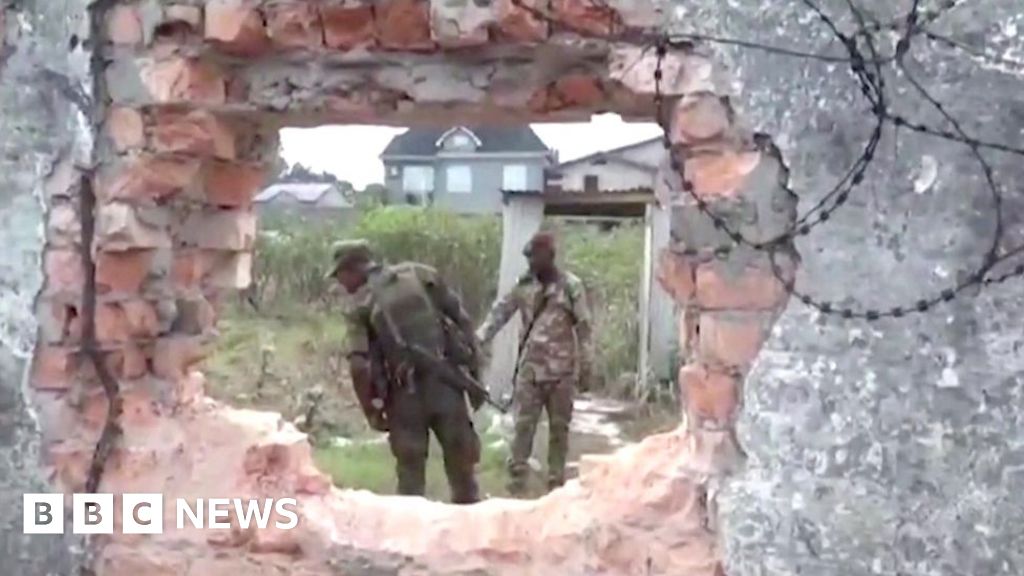Authorities say 129 people have died after inmates tried to escape from a high-security prison in Kinshasa, the capital of the Democratic Republic of Congo.
Interior Minister Shabani Lukoo said 24 prisoners died from gunshot wounds after warning shots were fired early Monday morning. Most of the others died from suffocation during the escape from Makala prison.
Despite reports of mass casualties on Monday, the government initially said only two people had died.
Seven years ago, at least 4,000 inmates escaped from the same prison, the country’s largest.
On Monday, people living near the prison spoke of hearing gunshots, but reporters trying to reach the scene were stopped by police cordoning off the area.
“There were gunshots from 01:00 or 02:00 until about 5:00 in the morning,” Dadi Soso, who lives near the prison, told AFP.
“Some people died, some fled,” he said, adding that security forces were removing bodies.
Graphic footage shared from inside the prison on Monday, but not confirmed by the BBC, showed lifeless bodies lying on the floor and people shouting for help amid the crowd.
About 24 hours after the attempted jailbreak, Mr Lukwu posted a video on X (formerly Twitter) acknowledging the severity of the incident and the death toll.
“This is also an opportunity to commend all security services, the national police and the army for their quick response and ability to control the situation and prevent escapes,” he said.
“It should be noted that damage did occur, including loss of life, injuries and, in particular, material damage to the Central Prison.
“Unfortunately, the administrative and registration offices are on fire. These are emergencies that we are currently addressing.”
Footage from the aftermath of the attempted jailbreak shows a gaping hole in a brick wall, a charred building, firefighters working the scene and office floors strewn with documents.
Makala prison has a capacity of 1,500 prisoners, but houses more than 14,000 inmates, AFP reported.
In 2020, the BBC interviewed a prison official who described poor prison conditions, including food shortages and a lack of sanitation, that led to people dying.
At the time it was estimated that only 6% of prisoners were actually serving their sentences, with the rest trapped in the DRC’s legal system, where cases could drag on for years.

